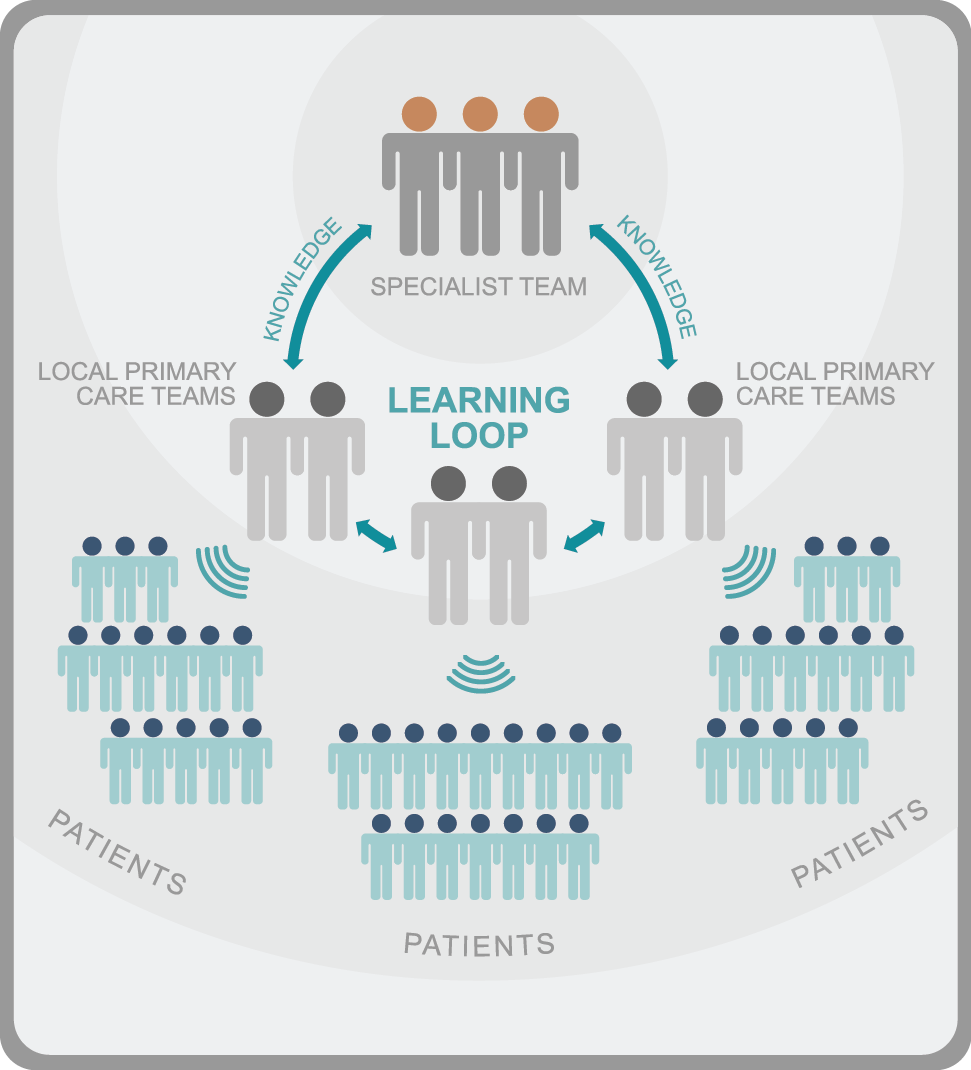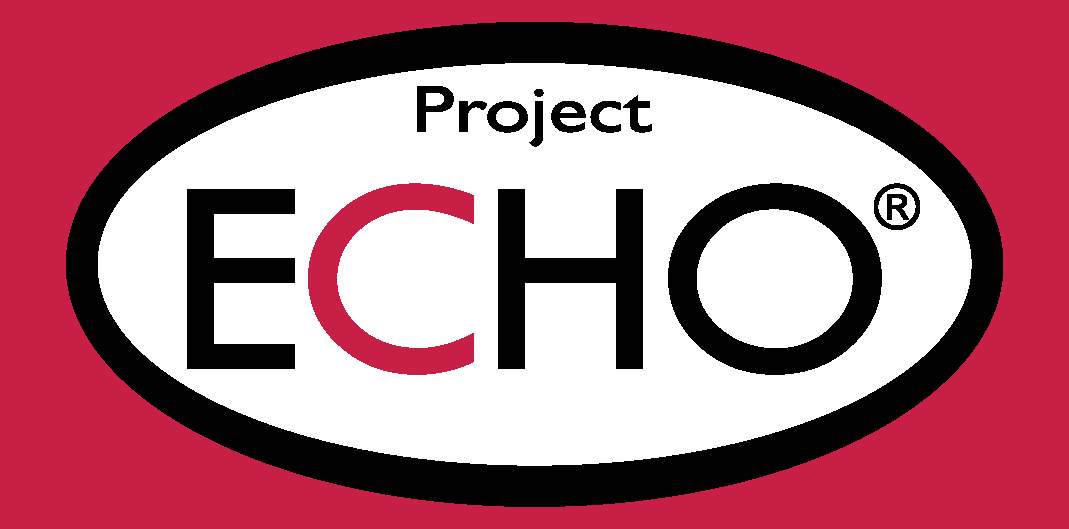A Resource for Healthcare and Social Services Professionals
Extension for Community Healthcare Outcomes Model
In the U.S. and around the world, people are not getting access to the specialty care they need, when they need it, for complex and treatable conditions.
Project ECHO® is a movement to demonopolize knowledge and amplify local capacity to provide best practice care for underserved people all over the world. The ECHO® model is committed to addressing the needs of the most vulnerable populations by equipping communities with the right knowledge, at the right place, at the right time. Project ECHO® trains and mentors primary care teams in the care of patients with complex conditions.
The ECHO® model is based on the principle of demonopolizing medical knowledge, with specialists sharing their expertise and providing telementorship and guided practice to help primary care teams to deliver high-quality specialized care to patients in their own communities. It is a distance education model in which specialists located at a "hub" connect via simultaneous video link with numerous community-based primary care teams (the "spokes") for the purpose of facilitating case-based learning. Developed by Dr. Sanjeev Arora at the University of New Mexico Health Sciences Center in Albuquerque to better serve patients with Hepatitis C, Project ECHO® has rapidly expanded and is currently used to address more than 55 complex health conditions all over the world.
Through technology-enabled collaborative learning, ECHO® creates access to high-quality speciality care in local communities.
Hub and spoke knowledge-sharing networks create a learning loop:

